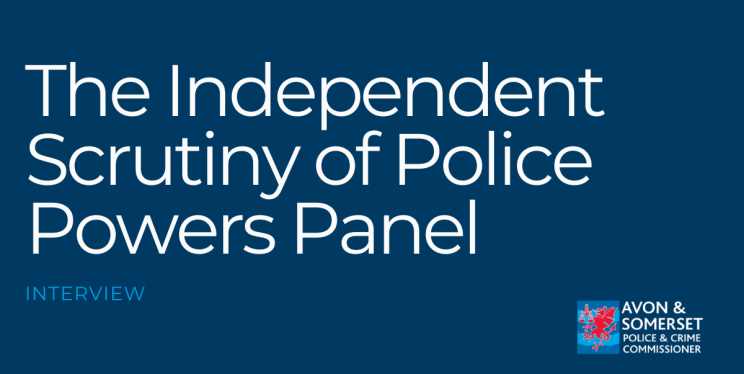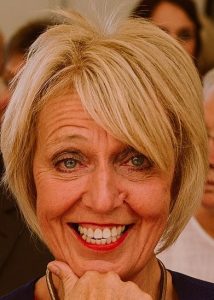ISoPP Interview: Chris Carter

The Independent Scrutiny of Police Powers (ISoPP) Panel is made up of local people who help the Police and Crime Commissioner (PCC) monitor the use of force by the police, such as, the use of a taser, or the use of stop and search powers.
We’re interviewing our panel members to give their insight into the panel – this time we speak to member Chris Carter. Chris has a long history of working with children and families involved in the care system. For the past 10 years, she has been a Business mentor, working with The Princes Trust and University of Bristol. She has enjoyed senior positions on the Boards of several charities in Bristol.

Chris Carter
What motivated you to join the Independent Scrutiny of Police Powers (ISoPP) Panel?
The police have been under a lot of scrutiny recently and I wanted to understand more about how they actually function, not just what I hear about in the media. I wanted to look at whether I could contribute in anyway.
Can you describe your background and how it contributes to your role on the ISoPP
My career began working with young offenders, before moving into child protection. I then set up a business providing independent experts within the family and criminal justice system. Over the past 10 years, I have worked in the charitable sector with organisations campaigning against violence against women and girls. All of my experience has focused on marginalised individuals and communities, the very same groups who are often involved with the police. I understand the complex nature of both sides and the negative perceptions that can exist.
What does a typical ISOPP session look like?
I am always extremely impressed with the seriousness that the police take ISoPP and there are always very senior officers present, freely answering any questions asked by panel members. We discuss a sample of cases and provide feedback. This can be critical of police actions, but it also highlights excellent practice. This is then fed back to police officers, either personally or by feeding concerns directly into the training process. We also look for themes in the videos we watch which directly relate to use of force and stop and search and highlight any worrying trends in practice.
What achievement during your time as a panel member are you most proud of?
I am relatively new to the panel so this is difficult for me to answer at this stage. However, I was pleased when members of the Independent Office for Police Conduct ( IOPC), attended panel at our request to discuss a case that panel was particularly concerned about. The panel may not have agreed with the outcome which was frustrating for us, but it was helpful to understand how the decisions had been made, and for them to hear the potential impact of their decision.
Watching bodycam footage of incidents of police force can be distressing, how do you and the panel members take care of yourselves after viewings?
Having worked in child protection for many years, I am used to dealing with very distressing situations and have a range of techniques that help me to switch off. Often the most difficult issues for me is feeling powerless to make immediate changes to the poor practice we do see when watching body worn videos, especially when it leads to increasing distrust in some of the communities they serve. Meeting together in ISoPP meetings to discuss this is extremely helpful and knowing this is taken very seriously by senior officers and acted upon.
How does the ISoPP Panel collaborate with the police to improve accountability?
As panel members we have a strong voice; we are part of the communities that provide consent for the police to do their jobs. We are entrusted with highly confidential information and our feedback is taken onboard with evidence that it has led to some changes of police practice and behaviour in some significant areas of policing.
What do you believe are the most significant benefits of having community volunteers involved in monitoring police powers?
I feel it as a big responsibility because we operate as the eyes of community. We are a step removed from the organisation, completely independent. We aren’t paid to do this, and we all have a real commitment to supporting the police to get to a place where they are valued and respected by all communities. This means that we are critical, we challenge, and we expect change if we feel police practice is damaging people and communities. This can be uncomfortable but there is a great deal of respect between panel members and senior officers. We have a common goal in wanting all communities to trust the police to keep them safe.
Did you have pre-conceived ideas about the police and how they operate before joining the panel, and has being part of the panel affected this?
I believed that certain people and communities have more negative experiences than others. Poorer, more ethnically diverse communities often feeling the weight of stop and search and use of force more than others. My experience on the panel to date hasn’t entirely shifted this view but it has enabled me to see how complex this area of policing is. I have seen brilliant officers manage tense and potentially dangerous situations well. I have seen the impact that mental health has in terms of police time and the training required to manage such cases. I see that there is a real commitment to change policing where it is needed but I understand that this is a long-term project which will need to be resourced.
